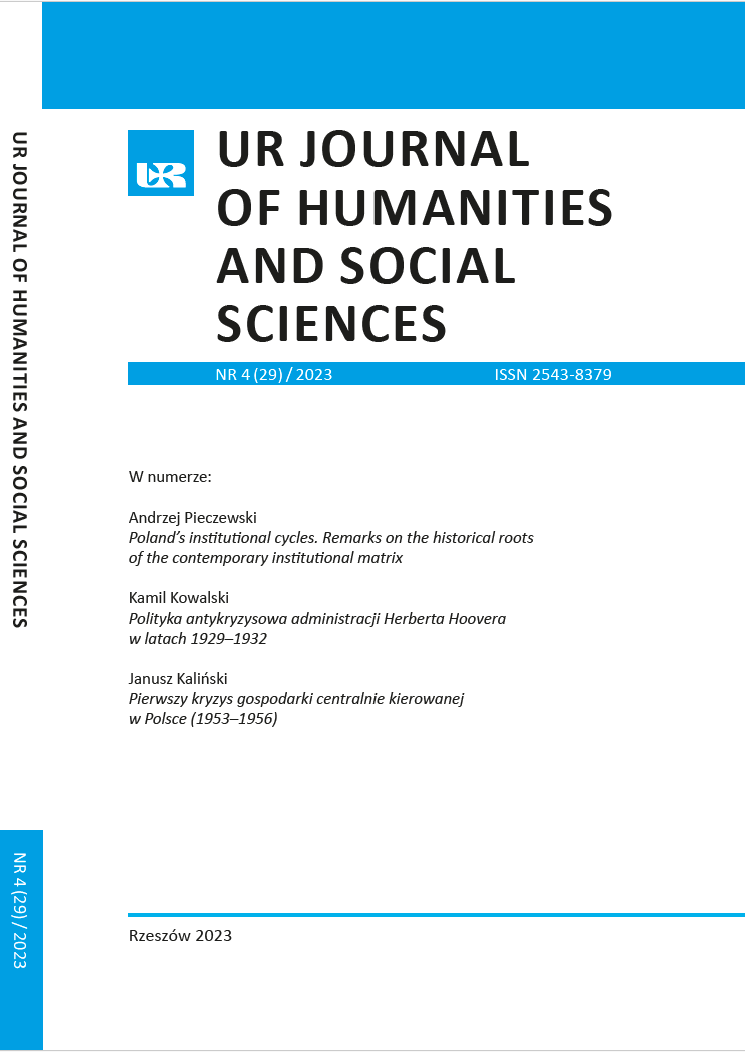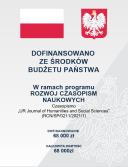Anti-crisis policy of the Herbert Hoover administration from 1929 to 1932
DOI:
https://doi.org/10.15584/johass.2023.4.5Keywords:
Great depression, Hoover, unemployment, recession, public worksAbstract
The unprecedented unemployment rate in 1932, reaching almost 24%, entitled the 31st US president, Herbert Hoover, to take extraordinary measures with economic policy instruments. This article presents a catalogue of activities undertaken by the Republican administration in 1929–1932, intended to restore the economy to economic growth. Based on the President's memoirs and public speeches, his views on economics and his economic philosophy are defined. The extent to which they influenced the anti-crisis measures taken during the first phase is shown. The central part of the text focuses on specific political decisions: the wage maintenance policy, the consensus between employers and employees, and the public works program. The evolution of Hoover's views is shown, moving from an approach that rejects the need to interfere with the market mechanism towards systematically greater regulation of the economy (the establishment of the Reconstruction Financial Corporation and the adoption of the Emergency Assistance Act). The argument is accompanied by a presentation of key macroeconomic data which makes it possible to assess the effectiveness (or lack thereof) of Hoover's anticrisis policies. This article considers their reception in American society. To this end, the Harlan miners' protest, the building of barracks and housing estates for the unemployed (hooversvilles), and the veterans' march in 1932 were described. The personification of economic collapse and Hoover's poor communication policy resulted in a disastrous result in the November elections. He himself went down in history as a "crisis", "passive" and "inept" president. In particular, this narrative was propagated by supporters of the Democratic Party, discounting the political benefits of pitting Hoover against Roosevelt. This is even though the administration of F.D. Roosevelt continued numerous programs initiated by the Republicans, and only after World War II did the US emerge from the crisis.
Supporting Agencies
Artykuł powstał w wyniku realizacji projektu badawczego nr 2022/06/X/HS3/00420 finansowanego ze środków Narodowego Centrum Nauki.Downloads
Downloads
Published
How to Cite
Issue
Section
License
Copyright (c) 2023 UR Journal of Humanities and Social Sciences

This work is licensed under a Creative Commons Attribution-NonCommercial 4.0 International License.



